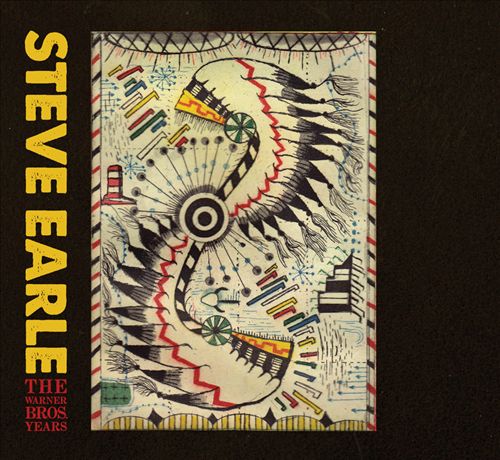Steve Earle/Jerry Jeff/New West
Four out of Five Stars
His insurgent attitude aside, Steve Earle’s never been remiss when it comes to offering a nod to those artists and friends who have left their influence on him throughout his career. Two albums containing songs written by pals of his that have passed on—Townes Van Zandt and Guy Clark specifically—offer tributes to early compatriots and collaborators. With Jerry Jeff, he completes a trifecta in tribute paying homage to Jerry Jeff Walker, a singer/songwriter who was one of the first artists to help popularize the genre that came to be known as “outlaw country,” a style Earle himself embraced early on.
Videos by American Songwriter
He’s decidedly used it to his advantage, especially as far as his own standards, those that include “Guitar Town,” “I Ain’t Ever Satisfied,” “Copperhead Road,” “The Revolution Starts Now,” and “Transcendental Blues,” among them. A three-time American Grammy Award winner and inductee into the Nashville Songwriters Hall of Fame affirms the fact that he’s learned his lessons well.

In fact, Jerry Jeff fits seamlessly with Earle’s now signature style, as underscored by the fact that the opening track “Gettin’ By” is preceded by his spoken introduction; “Hi buckaroos, Steve Earle again…” the attitude is synonymous as well, especially when it comes to songs such as “I Makes Money (Money Don’t Make Me),” “Hill Country Rain” and the tune Walker’s best known for, “Mr. Bojangles,” which Earle delivers with a gruff sort of growl, belying the tender tone shared in any number of earlier renditions.
That’s not to say Earle opts to negate sentiment entirely. “Little Bird” and “My Old Man” are flush with tender tones, and even “Charlie Dunn,” though celebratory in its stance, can’t disguise the affection Earle obviously feels for the character name-checked in the title.
As a result, Jerry Jeff serves the purpose well by turning the spotlight on an artist that deserves greater attention within the Americana arena. Earle’s effort to share his songs will hopefully contribute to that added appreciation.
Photo by Danny Clinch/Mixed Media Works













Leave a Reply
Only members can comment. Become a member. Already a member? Log in.